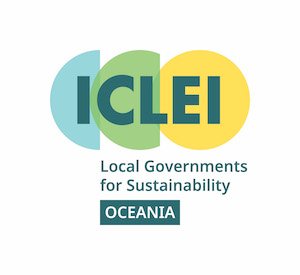ICLEI to enter into a renewed MoU with ALGA to strengthen multi-level governance
The Board of the Australian Local Government Association (ALGA) recently approved a second memorandum of understanding (MoU) with ICLEI Oceania. The MoU, which is key to strengthening the existing partnership with Australia’s peak local government body, identifies mutual priorities from ICLEI’s five core development pathways and ALGA’s strategic priorities over the next couple of years to maximise the economic, environmental and social well-being through collective local action across Australia.
The MoU will serve as an important institutional tool to frame a schedule of prioritised actions that will accelerate climate, biodiversity and broader sustainability actions within the Australian Local Government sector within the context of the SDGs, noting SDG 11 (Sustainable Cities and Communities) and other global frameworks. The partnership is premised on multilevel governance and the following interconnected pathways to steer and accelerate sustainable urban development
Zero emission development: By implementing low and even zero-carbon technologies and sustainable transportation solutions (SDG 7 - Affordable and Clean Energy and SDG 13 - Climate Action), local governments can contribute to reducing greenhouse gas emissions significantly while improving climate resilience, supporting just energy transitions and ensuring urban quality of life.
Nature-based development: Emphasising green infrastructure and biodiversity conservation (SDG 15 - Life on Land, SDG 3 - Good Health and Well-Being, SDG 6 - Clean Water and Sanitation, SDG 14 - Life below Water) within urban planning helps address climate resilience, improves health and well-being in cities and protects and restores vital ecosystems. These provide essential services for people and all life on earth to thrive, collectively contributing to broader global nature goals as contained in the UN-adopted Global Biodiversity Plan in December 2022 during the CBD COP15, which aims to reverse species loss, restore ecosystems and create a world where humanity lives in harmony with nature. A number of these objectives can only be attained if our urban communities and local governments are intricately involved through actions and implementation on the ground.
Circular Development: Circular economy practices in cities (SDG 2 - Zero Hunger, SDG 6 - Clean Water and Sanitation, SDG 12 - Sustainable Consumption and Production) not only reduce resource consumption and waste, but also mitigate emissions through sustainable production and consumption patterns while securing food and water systems upon which our cities depend.
Resilient Development: Building resilient communities and infrastructure (SDG 9 - Industry, Innovation, and Infrastructure) safeguards against climate impacts while fostering sustainable development.
Equitable Development: Prioritising social inclusion and economic opportunities for all (SDG 1 - No Poverty, SDG 4 - Quality Education, SDG 5 - Gender Equality, DEG 8 - Decent Work and Economic Growth, SDG 10 - Reduced Inequalities, and SDG 16 - Peace, Justice and Strong Institutions along with) is fundamental to ensuring that our local action at city level benefits vulnerable populations.
With ICLEI Oceania serving as the Regional HelpDesk of the Global Covenant of Mayors on Climate and Energy (GCoM), the MoU furthermore collaborates on strategic initiatives relating to low emissions and resilience.
The MoU will also strengthen ICLEI Oceania’s capacity to promote collective advocacy on climate change and biodiversity and land to, in turn, inform ICLEI’s global advocacy into UN processes and events, including at the Conferences of the Parties (COPs). This includes implementing CHAMP, which calls for local governments to inform national ambitions, specifically Australia’s 2025 Nationally Determined Contributions (NDCs) through:
consultation, collaboration and partnerships across tiers of government,
ensuring that the 2025 NDC investment plans include subnational action, and
meeting at High-Level Political Dialogues ahead of the UNFCCC COP29 and COP30.
ICLEI is keen to pursue similar institutional arrangements in New Zealand and the Pacific Islands to accelerate bolder multi-level governance processes in climate, biodiversity and cross-cutting sustainability goals.
